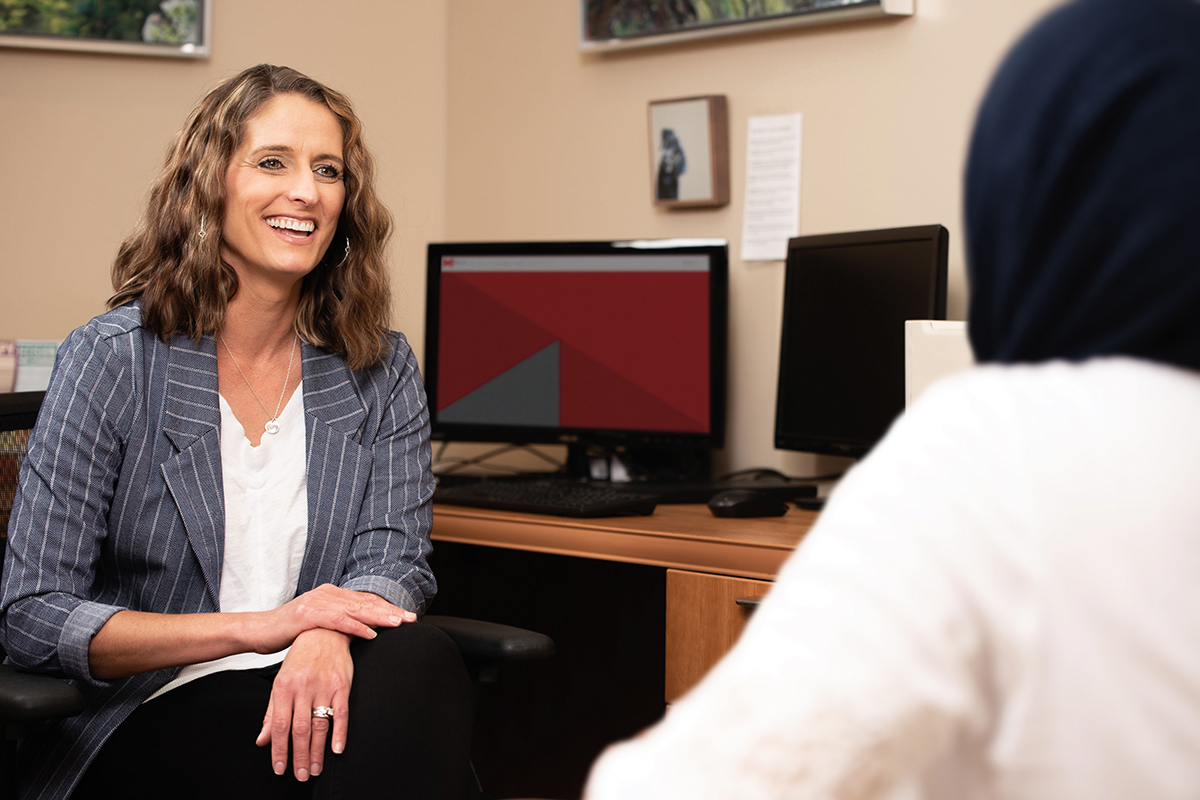There are nearly 20 million college students in America. The COVID-19 pandemic has made college far different than they expected.
“It got me to a depression stage,” said Maryville senior Nidal Yasir. “I’ve never felt depressed before, and this was the first time I’d actually felt depressed. And I did not know what to do. I would come to campus. And after class, I wouldn’t feel like talking to anybody. So, I would just go home.”
Yasir and Maryville classmates Reid Coyle, Emma Ernst and Marissa Jones candidly shared their personal stories with Scripps TV. The video segment will air on 61 television stations throughout the U.S. to bring awareness to the need for increased mental health services.
“Even prior to the pandemic, universities nationwide were seeing huge increases in the number of students struggling with depression, anxiety and suicidal thoughts,” said Jennifer Henry, MA, LPC, director of the counseling center. “People forget that college students are barely adults. They think they’re doing fine, that they can handle things on their own. But really college is a time when students are expecting to branch out and be spontaneous. They’re having this experience but in such a different way.”
Maryville University recently announced expanded Mental Health First Aid training for faculty and staff. The program previously launched in August 2021 with 50 individuals taking advantage of the course. The expansion invites and encourages all faculty and staff to participate.
The training teaches how to identify, understand and respond to signs of mental health and substance use problems. The goal is to equip individuals to become better observers and responders to students in order to be able to spot problems before they become a serious challenge.
“The pandemic has caused emotional strain and enormous psychological impact on our students that we want to mitigate,” said Maryville University President Mark Lombardi, PhD. “Often, if we can address mental health and substance use problems early on, we can make a difference. Maryville is offering this training to faculty and staff so that we are better prepared to serve our students, and each other.”
The training is led by Associate Professor of Occupational Therapy Ashlyn Cunningham, OTD/ OTR/L, who is a certified instructor for Mental Health First Aid. Individuals are certified for three years after completing the training.
Additionally, the University offered a campus-wide mental health day in October. Classes were canceled for both on-campus and online students. In lieu of classes, Maryville hosted a variety of events to allow community members to engage in self-care, including yoga, guided deep stretching and D.I.Y. sugar scrub creations.
Maryville’s Counseling Center also welcomed a fourth personal counselor to the team for the fall semester: Linda Meyers, MSW, LCSW, CADC. “This is my third stint at Maryville, and I’m glad to be back with the team to help students,” Meyers said. “Asking for help is a strength rather than a weakness. If any student feels they need help — with anything — just give us a call.”
Students can also reach a licensed counselor anytime, 24/7 by calling the Counseling Center Support Line. All Support Line calls are reviewed and followed up on by the main campus Counseling Center staff.
The Counseling Center’s Virtual Relaxation Room offers resources including meditation and relaxation exercises, peaceful music and a four-part stress management workshop. The team has also made a series of videos including a recent video on managing test anxiety and another about practicing gratitude.
Watch the full Scripps TV feature below.
